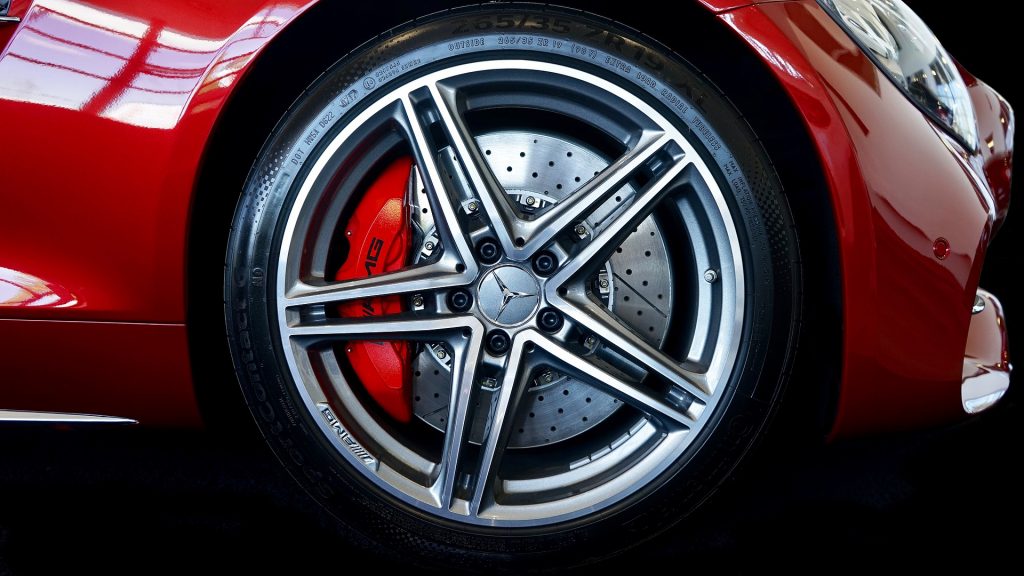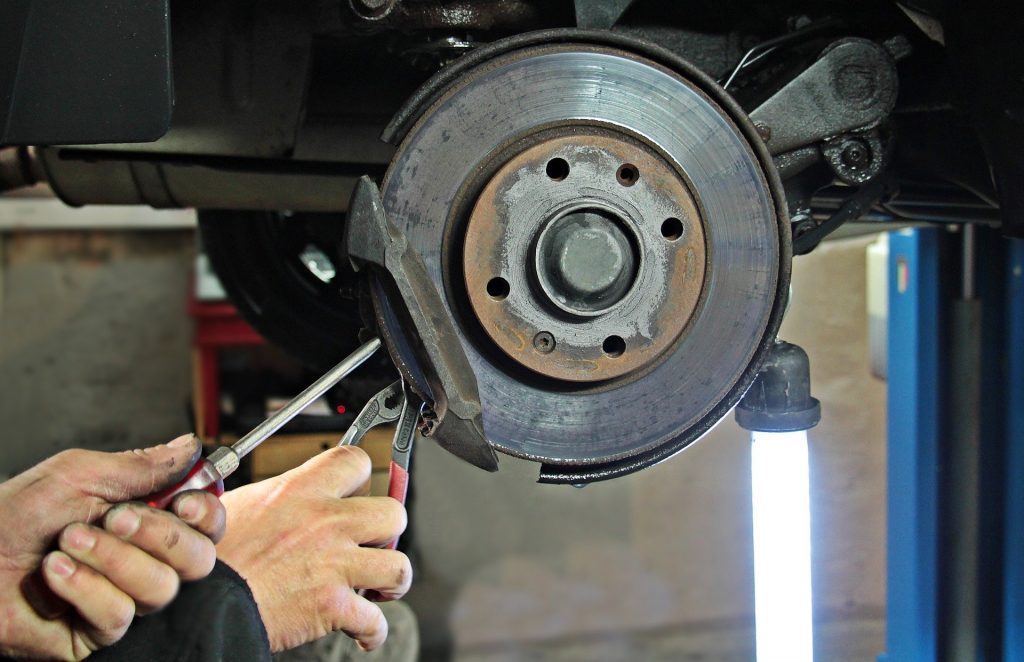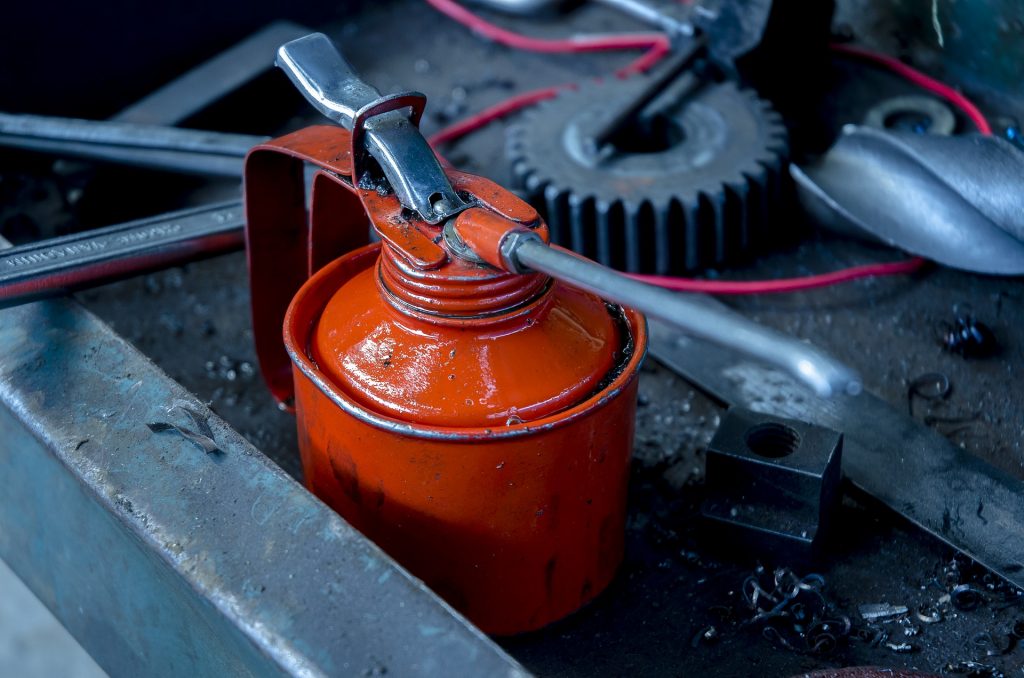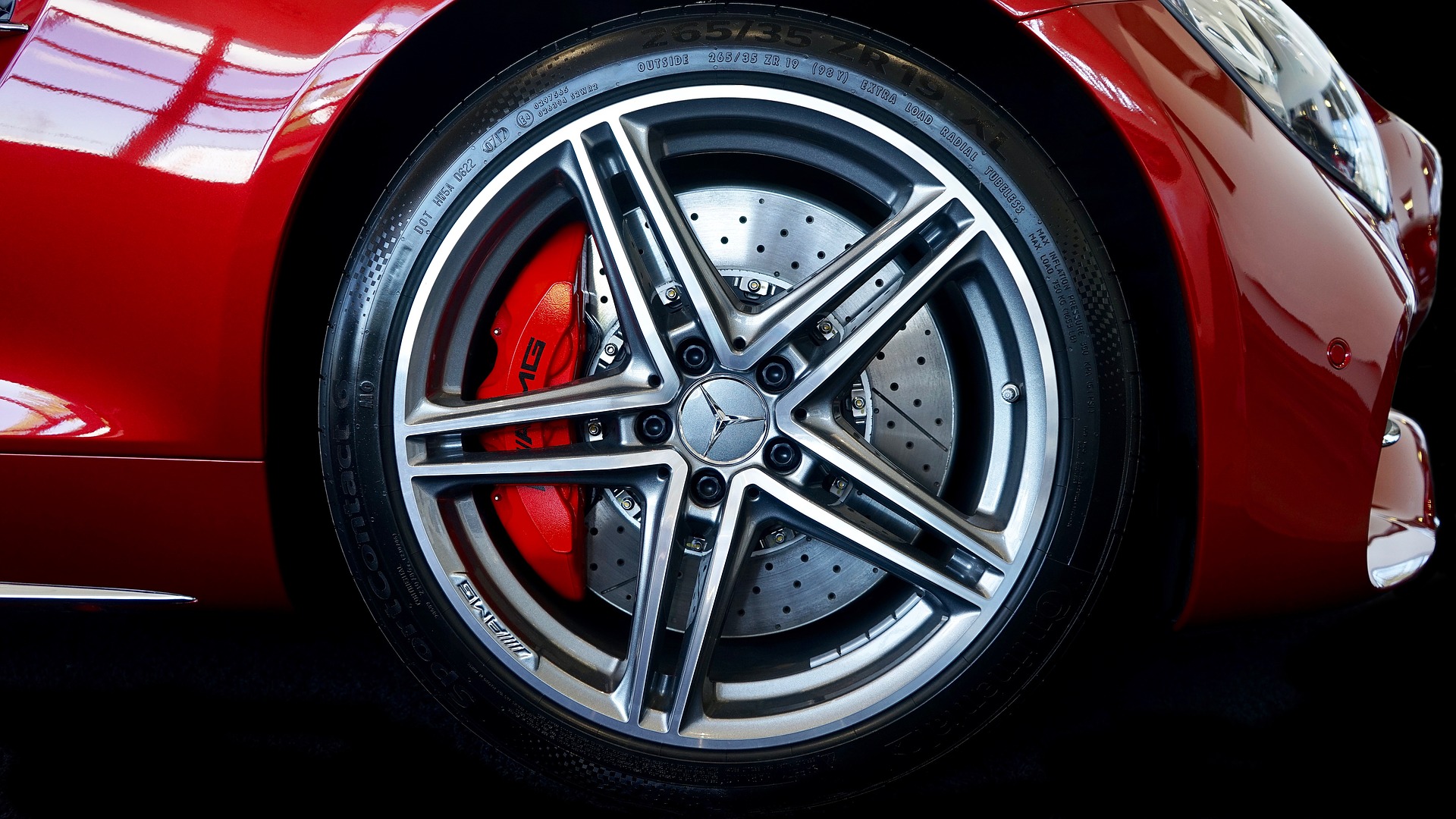
Hearing a squeaky sound every time you hit the brake can not only be annoying and can also be worrisome if the sounds worsen as time passes. Most of the times, it’s nothing to worry about; brakes sometimes make noises such as intermittent chirps.
There are four common reasons for which brakes squeaks and most of them are nothing to worry about. But before diving into these causes and solutions, let’s take a look at what brake squeal is. Essentially, the squeak you hear is caused by vibration from the interplay between a brake disc, calliper, and pad.
Types of Brakes

Knowing the types of brakes there are will facilitate your understanding of the causes. So, there are two types of brakes in vehicles. The first type is called a disc brake and the second one is a drum brake.
- Disc Brakes
Disc brakes are most used in vehicles. In this type of brake, the pad presses against a disc or rotor to stop the car. These usually squeak by condensation moisture gathered overnight, thinning brakes and cheap brake pads that are high in metal content.
- Drum Brakes
Drum brakes are found on the back wheels of vehicles. These brakes come equipped with curved shoes or pads that press outward against a rotating cylinder-shaped part called a brake drum. These squeaks when there’s not enough lubricant at the shoe-to-backing-plate contact points.
Disc Brakes: Causes and Solutions for Each Type of Brake Squeaks
Cause # 1: Moisture Gathered Overnight
Disc Brakes Squeak After Car Sits Overnight
It’s common for brakes to squeak in the morning. This is simply because when the car sits overnight, moisture from rain, dew, or condensation collects on the surface of the brake rotors.
As this moisture collects on the rotors, a thin layer of rust begins to form on the surface of the rotor. This rust gets scraped off the rotors by the pads when the rotor starts turning. These fine particles of rust, then, get caught on the leading edge of the brake pad. The squeaking sound you hear is caused by these particles getting embedded into the leading edge of the pad.
Solution:
The only way to stop this from occurring is by keeping your car in a climate-controlled environment. You might, therefore, have to make some adjustment to your garage.
Cause # 2: Thinning Brake Pads
Each time the brakes are engaged, their brake pads are gradually worn out. This is why every brake pad comes with a brake-wear indicator. These wear indicators are little metal tabs made of hardened steel that manufacturers attach to the edge of the brake-pad backings. They can be attached in various ways, such as being welded on or attached by using a rivet or a push-on clip.
The squeaking sound you hear is these steel tabs hitting the rotor. This tells you that the brake pad is getting very thin and is about to be totally worn out and you have to do everything necessary to avoid a metal-to-metal contact situation.
Solution:
There’s no real solution to this as you cannot prevent the wearing out from happening. This is how brakes are supposed to work. What you can do is having your car regularly checked by fully licensed and qualified mechanics. This ensures that the brake pads are replaced before they are completely used up and irreversibly damage the rotors.
Cause # 3: High Metal Content in the Brake Pads
All brake pads have a certain amount of metal content in it. Cheaper brake pads, on the other hand, will have very high metal content. These large chunks of metal that have been pressed into the pad material drag on the rotor and cause a high-pitched brake squeak.
And brake pads take time to get worn out. So, unless you want to shell out even more money and get new, better ones, you’ll be stuck with these cheap brake pads and the annoying squeaks that come with it.
Solution:
Get brake pads that are high in organic brake material, such as resin and rubber. The more organic the brake material, the fewer metal shavings there will be in the brake pad. Obviously, the fewer the shavings, the less the squeaking.
Drum Brakes: Causes and Solutions for Brake Squeaks
Cause # 1: Lack of Lubrication

If you hear a screeching sound from the rear brakes after having applied the brakes, you can be sure that the shoe-to-backing-plate contact points need lubrication. No or lack of lubrication will cause the metal to rust, leading to the shoes to scrape against the backing plate.
Solution:
Simply keep the contact points lubricated by applying either a high-temperature anti-seize compound or a lube on the back of brake pads and on all brake pad/shoe contact points.

